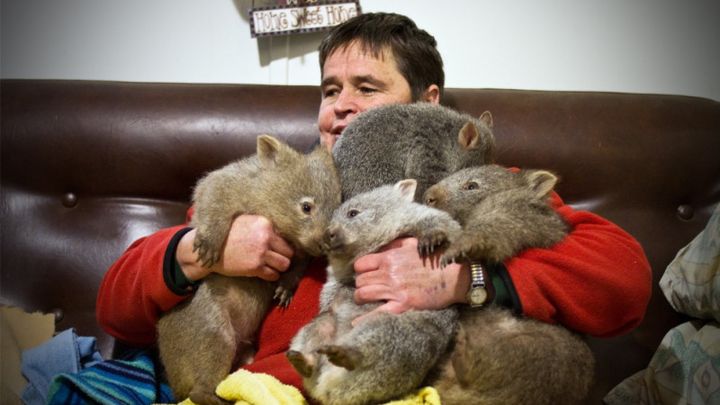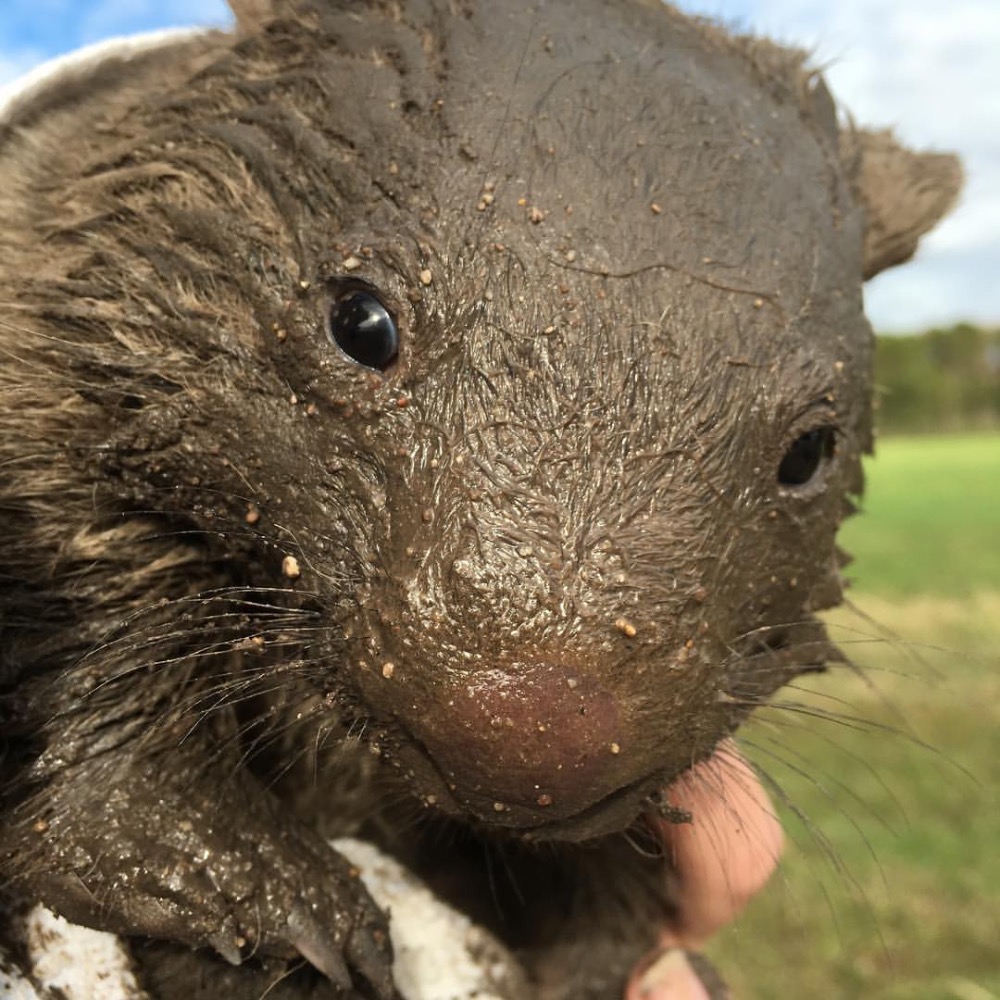
Flinders Island Wombat Family fund
Donation protected
Living on Flinders Island, Tasmania you only need to take a drive at dusk or dawn to spot wildlife grazing on the roadside.
It’s like living in a nature reserve 24/7 – After all that is basically what the island is. With beautiful National Parks and Wildlife Sanctuaries, yet the commuter zones are shared by all.
For the past two decades, wombats injured on Flinders Island roads have been sent to Kate Mooney's 40-hectare farm 'Greenglades' for some rest and rehabilitation.
Home to Derek the Wombat and family, Kate has nursed hundreds of orphaned & injured wombats back to health before they self release to the bush.
"Twenty odd years ago somebody found a wombat on this road and gave it to me, and that's what started it. Batsky was the first one and that was a very long time ago"

FLINDERS ISLAND WOMBATS
'The wombat is the largest burrowing mammal. Indeed, it is such an accomplished burrower that early settlers called it a 'badger'. However, its closest relative is in fact the koala. With its short tail and legs, characteristic waddle and 'cuddly' appearance the wombat is one of the most endearing of Australia's native animals.'
The Flinders Island wombats are a sub-species of Australian wombats, they are smaller than the Tasmanian and Mainland ones. The only other population of these reside on Maria Island [Tasmania's east coast] where they have been released.

YOUR DONATION
Your contribution to the Flinders Island Wombat Family fund will go directly to Kate Mooney and the carers on the island to assist with costs of feeding and caring for the wombats.
A special mammal milk is needed when the wombats are very young, they then move on to pellets at an older age and Kate can have up to 15 wombats at a time in her care! Our local Walkers Supermarket also supports Kate and her wombat family with fresh fruit and veg that she can feed to the little guys.
Your donation will also assist with the costs of maintaining a safe enclosure at Kates 'Greenglades' property. A fenced and sheltered area where the wombats are free to wander in and out during their transition time they are 'self releasing' back into the bush.
These wombats are definitely not pets; and this rehab contributes greatly to the genetic diversity of the isolated population of wild wombats.
Reaching our target of $5,500 means Kate and the carers have the financial support to spend approx $100 per week over an entire year to assist with costs of looking after the Flinders Island wombats.
No donation is too small. Every dollar makes a difference. Kate, Derek & the Flinders Island Wombat Family thank you!
Visit Derek the Flinders Island Wombat Facebook Page
Read more about Kate at IslandLifestyle
It’s like living in a nature reserve 24/7 – After all that is basically what the island is. With beautiful National Parks and Wildlife Sanctuaries, yet the commuter zones are shared by all.
For the past two decades, wombats injured on Flinders Island roads have been sent to Kate Mooney's 40-hectare farm 'Greenglades' for some rest and rehabilitation.
Home to Derek the Wombat and family, Kate has nursed hundreds of orphaned & injured wombats back to health before they self release to the bush.
"Twenty odd years ago somebody found a wombat on this road and gave it to me, and that's what started it. Batsky was the first one and that was a very long time ago"

FLINDERS ISLAND WOMBATS
'The wombat is the largest burrowing mammal. Indeed, it is such an accomplished burrower that early settlers called it a 'badger'. However, its closest relative is in fact the koala. With its short tail and legs, characteristic waddle and 'cuddly' appearance the wombat is one of the most endearing of Australia's native animals.'
The Flinders Island wombats are a sub-species of Australian wombats, they are smaller than the Tasmanian and Mainland ones. The only other population of these reside on Maria Island [Tasmania's east coast] where they have been released.

YOUR DONATION
Your contribution to the Flinders Island Wombat Family fund will go directly to Kate Mooney and the carers on the island to assist with costs of feeding and caring for the wombats.
A special mammal milk is needed when the wombats are very young, they then move on to pellets at an older age and Kate can have up to 15 wombats at a time in her care! Our local Walkers Supermarket also supports Kate and her wombat family with fresh fruit and veg that she can feed to the little guys.
Your donation will also assist with the costs of maintaining a safe enclosure at Kates 'Greenglades' property. A fenced and sheltered area where the wombats are free to wander in and out during their transition time they are 'self releasing' back into the bush.
These wombats are definitely not pets; and this rehab contributes greatly to the genetic diversity of the isolated population of wild wombats.
Reaching our target of $5,500 means Kate and the carers have the financial support to spend approx $100 per week over an entire year to assist with costs of looking after the Flinders Island wombats.
No donation is too small. Every dollar makes a difference. Kate, Derek & the Flinders Island Wombat Family thank you!
Visit Derek the Flinders Island Wombat Facebook Page
Read more about Kate at IslandLifestyle
Organizer
Sammi Gowthorp
Organizer
Palana, TAS